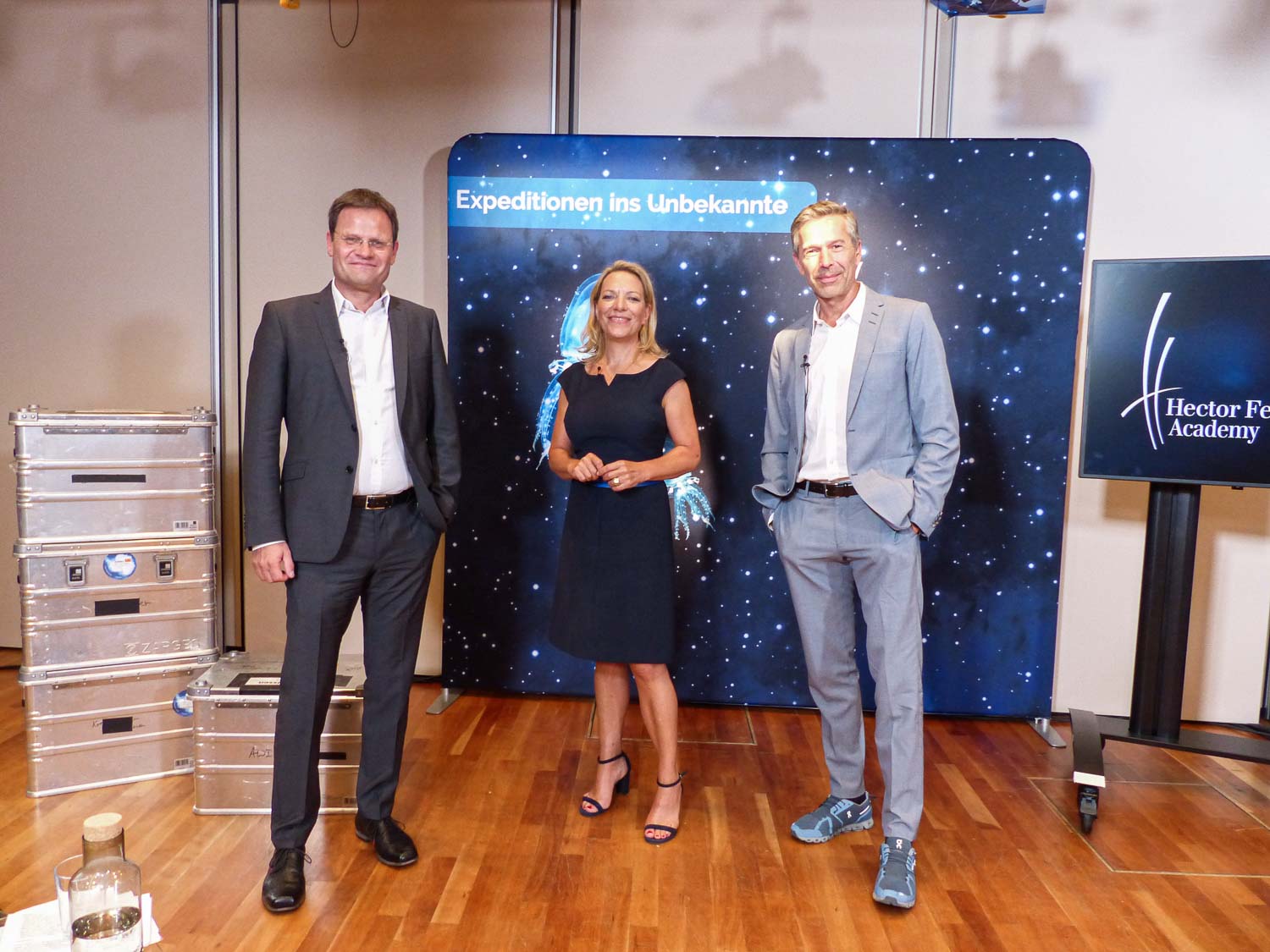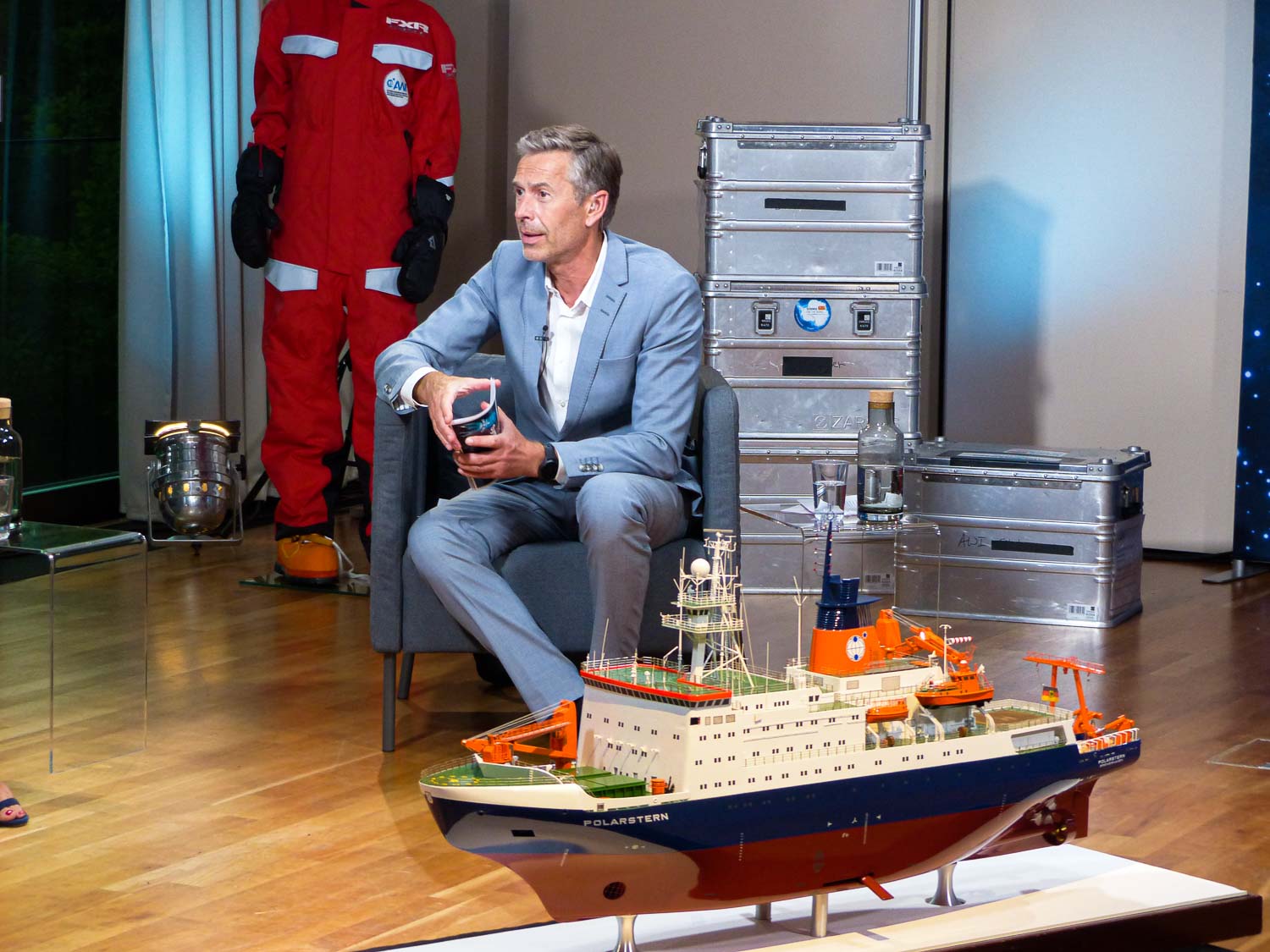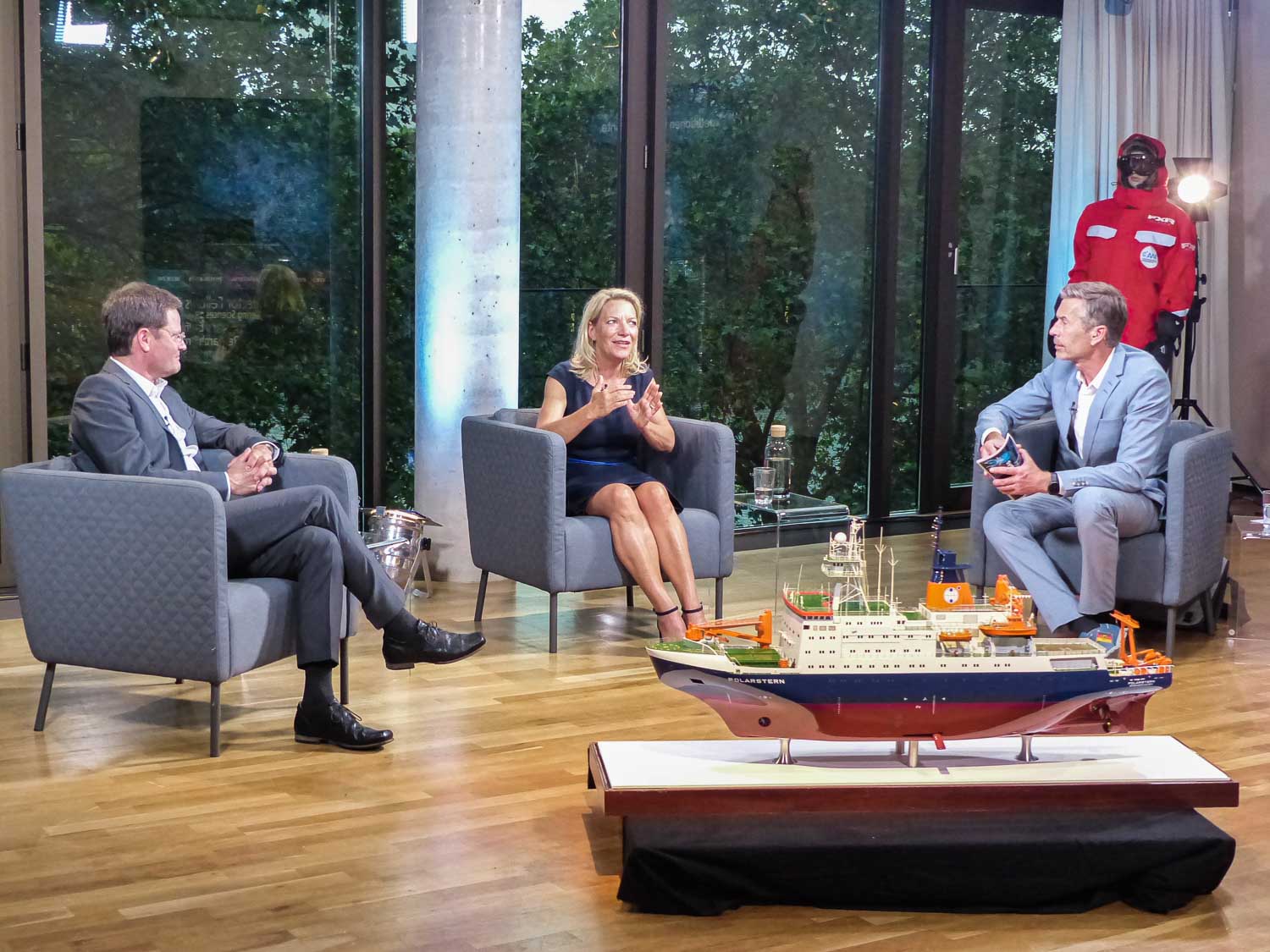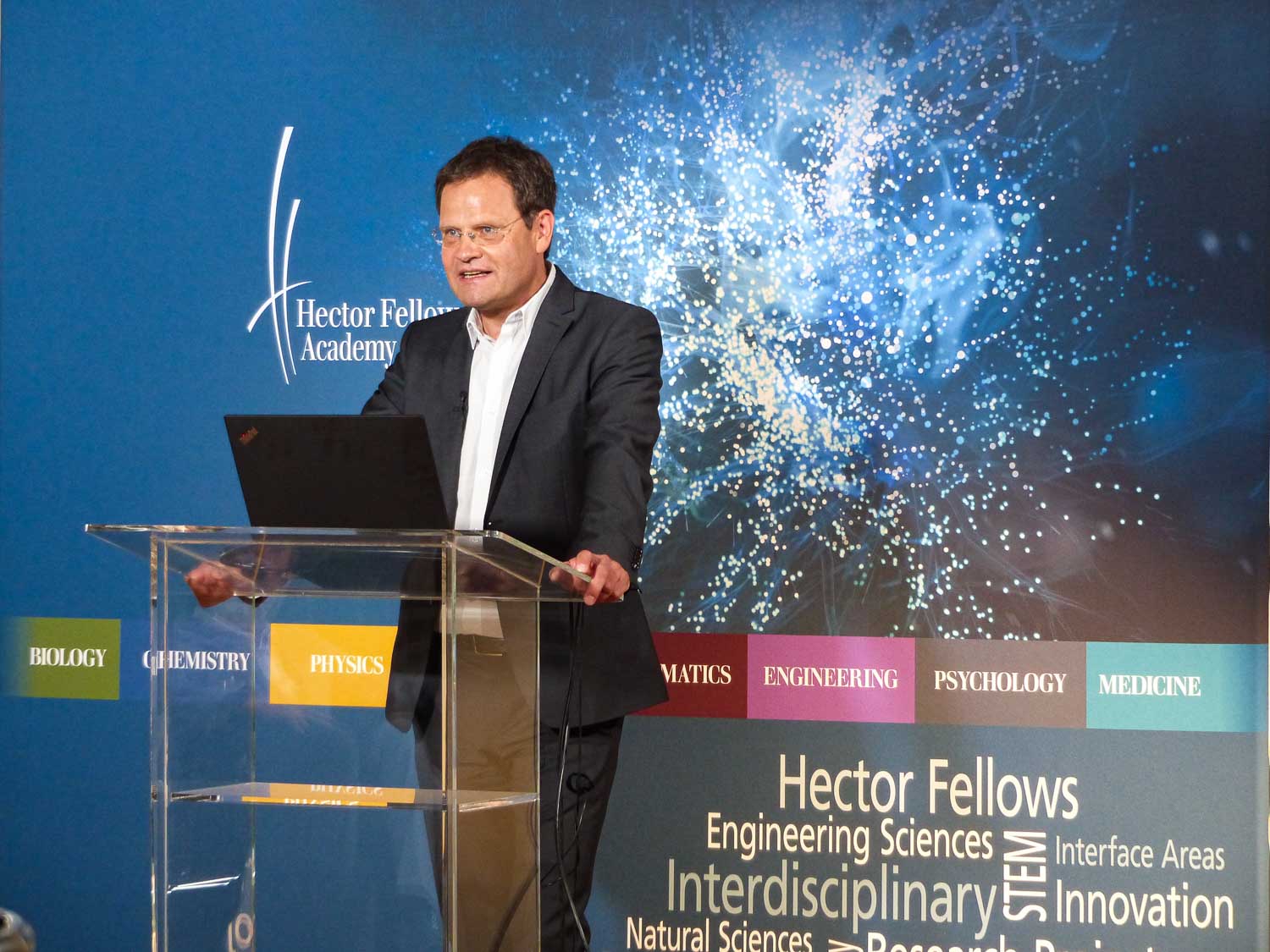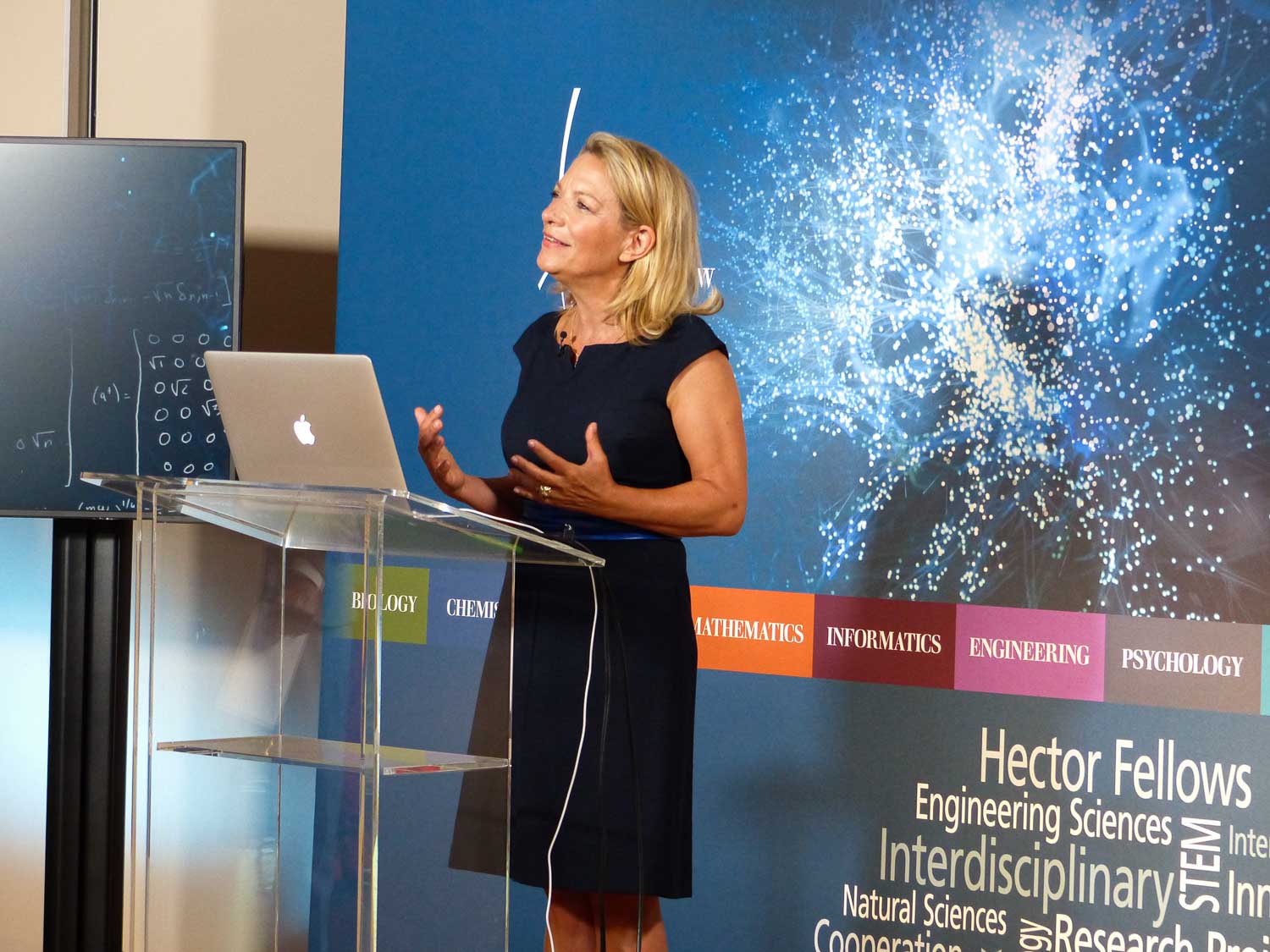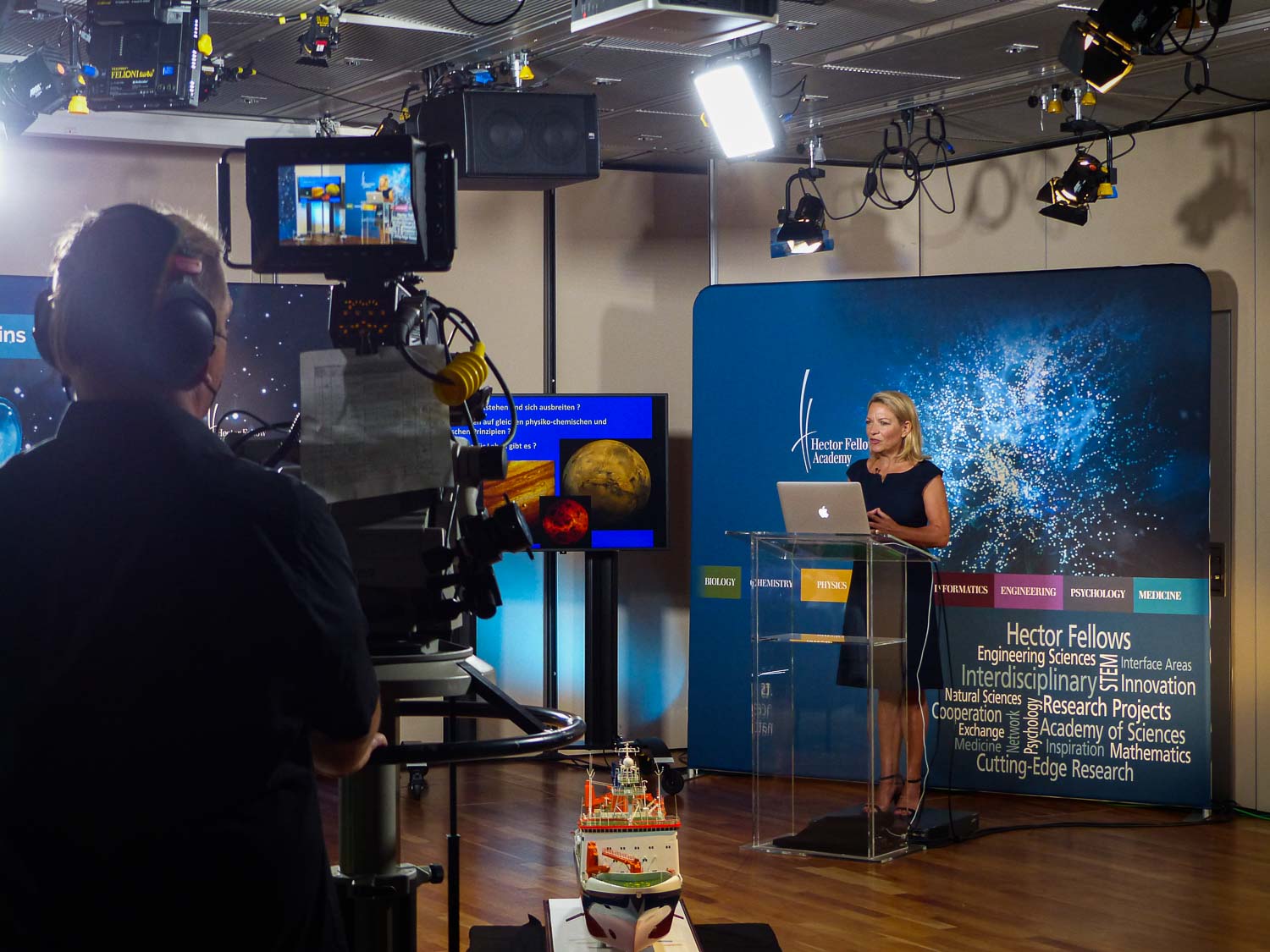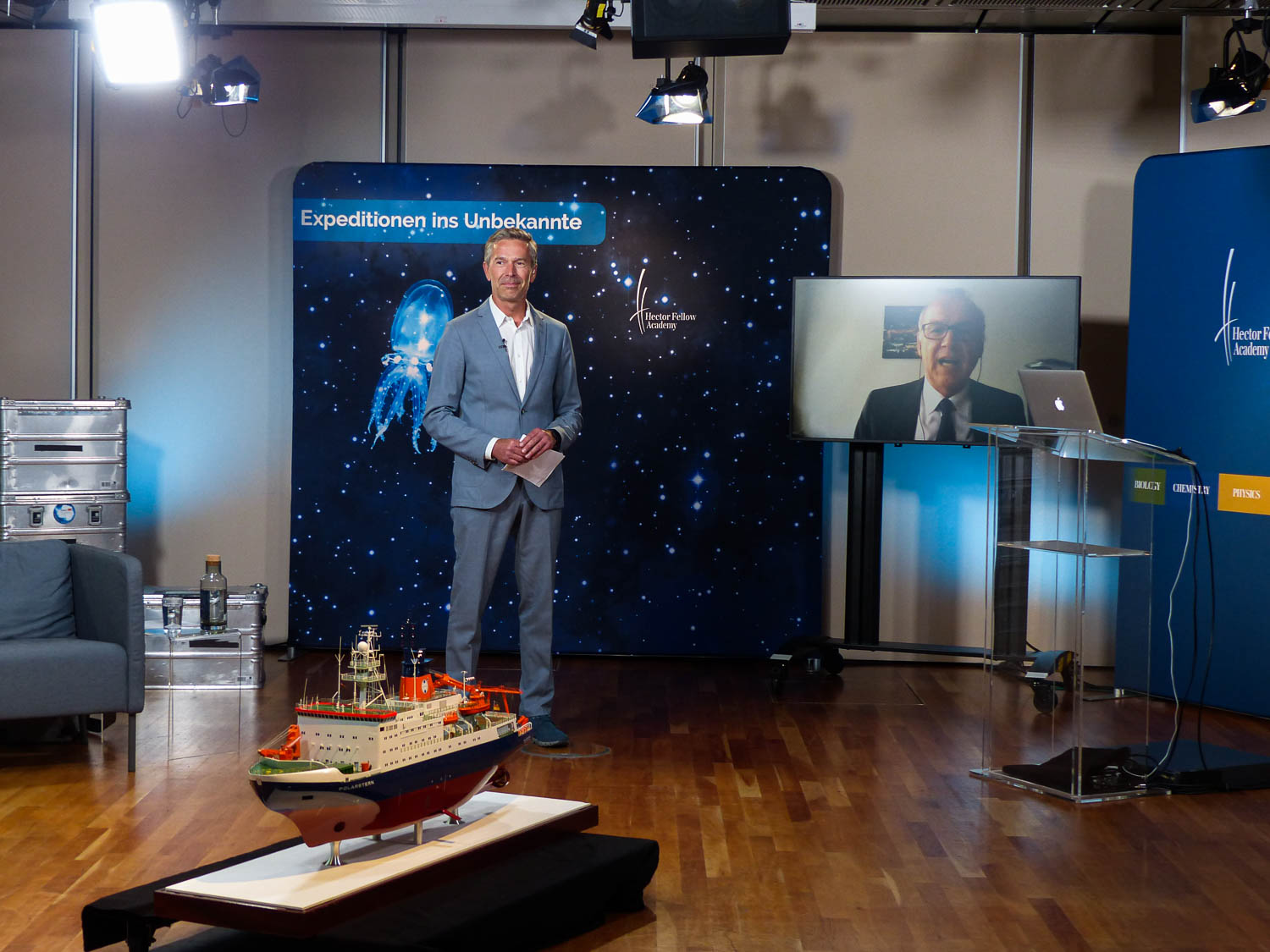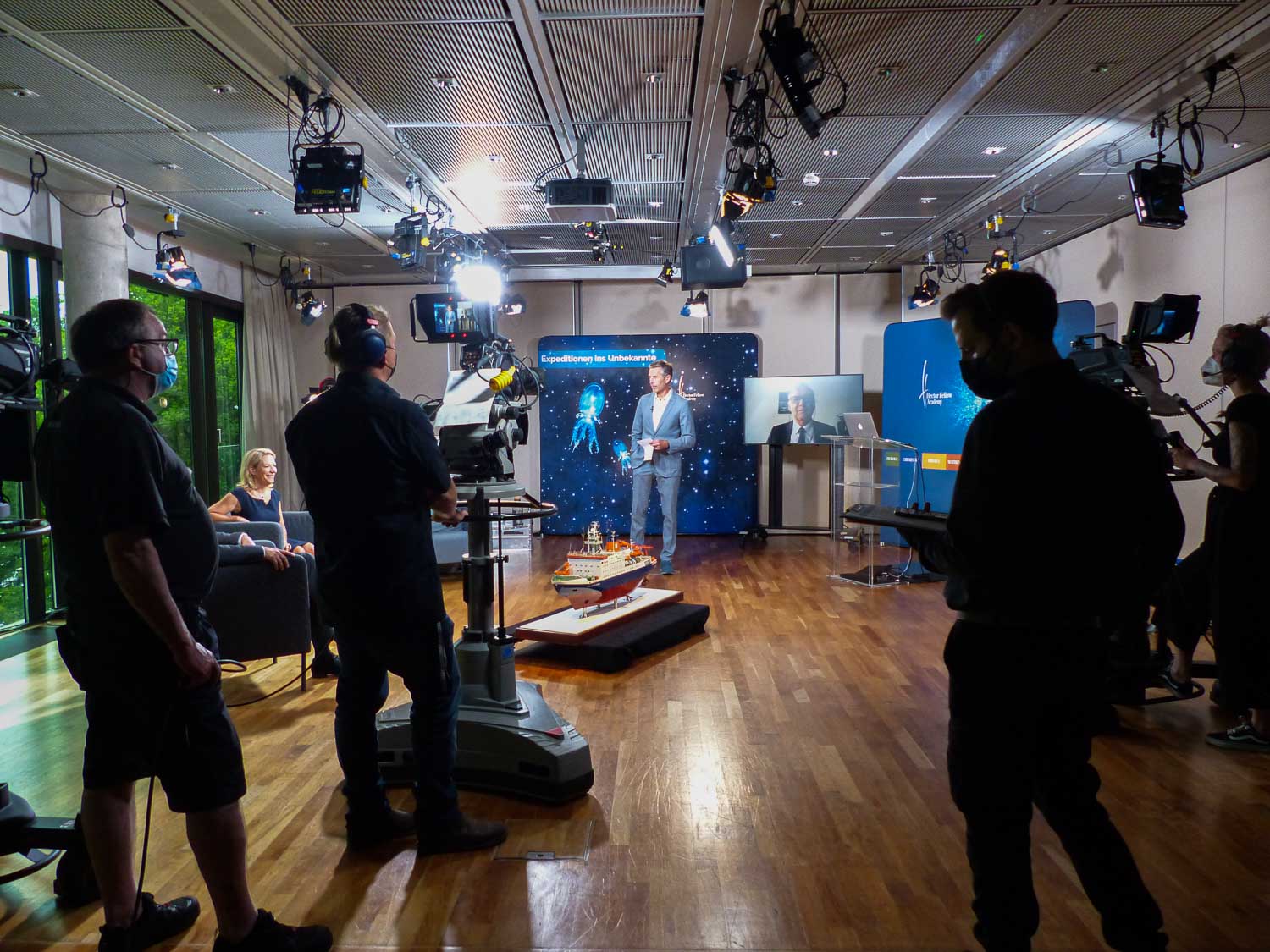Expeditions into the Unknown — North Pole and Deep Sea as extreme regions of Earth
Science Evening 2021
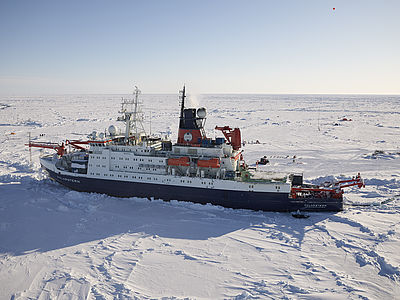
The Polarstern research vessel on the MOSAiC Arctic expedition (Copyright: Michael Gutsche)
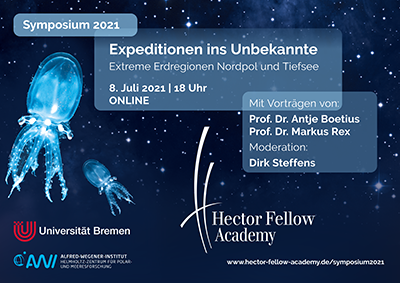
Moderation
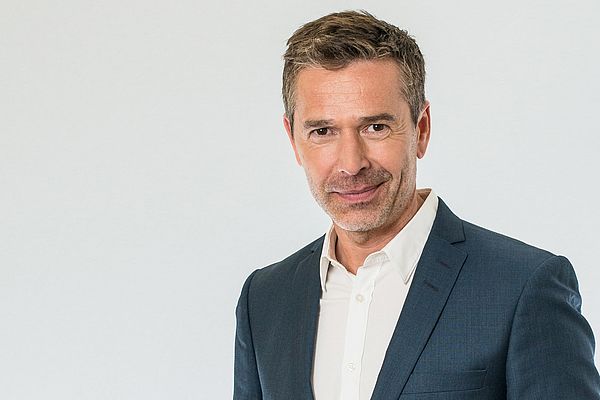
Dirk Steffens
Journalist & TV presenterDeep sea and Arctic as evidence of climate change
Recording with Antje Boetius, Markus Rex and Dirk Steffens available
Bremen — The Hector Fellow Academy Science Evening entitled "Expeditions into the Unknown — North Pole and Deep Sea as extreme regions of Earth" took place on Thursday, July 8, 2021. The Science Evening was broadcast live from the Studio Bremedia in Bremen. The Hector Fellow Academy together with its cooperation partners, the University of Bremen and the Alfred Wegener Institute Helmholtz Centre for Polar and Marine Research, hosted the event. About 1,100 viewers took up the offer and were able to ask questions about the lectures. The recording of the event is now available on YouTube.
This year's Hector Fellow Academy Science Evening was not held with an audience at one of the Hector Fellows' locations in Germany, as usual. After being postponed from last year, this year's Science Evening was broadcast live from Bremen with scientific host Prof. Dr. Antje Boetius, deep-sea and marine biologist, professor at the University of Bremen and director of the Alfred Wegener Institute Helmholtz Centre for Polar and Marine Research in Bremerhaven. Nevertheless, the event was a complete success. About 1,100 participants from Germany, Switzerland and Austria had joined in the event.
The evening's lectures were given by Prof. Dr. Antje Boetius and climate scientist Prof. Dr. Markus Rex, head of the expedition MOSAiC, head of the department of atmospheric physics at the Alfred Wegener Institute.
The symposium was officially opened by Prof. Dr.-Ing. Bernd Scholz-Reiter, Dean of the University of Bremen. Science journalist and TV moderator Dirk Steffens led through the event.
In her lecture "Functions of the Deep Sea for Earth and Life", Prof. Dr. Antje Boetius addressed the diversity of life forms and seascapes that are hidden in the deep sea. She emphasized that the deep sea could be considered the life support system of the "Spaceship Earth" because it not only produces half of the oxygen necessary for life, but also stores CO2 at the same time. The deep sea is full of fascinating life, yet it has hardly been explored to date. According to Antje Boetius, an estimated 10 million species are still waiting to be discovered, and 90% of the Earth's biodiversity is found in the oceans.
In the lecture "Frozen at the North Pole — Expedition to the Epicenter of Climate Change" by Prof. Dr. Markus Rex, the focus was on one of the coldest regions on earth: in his talk, he reported on the largest Arctic expedition to date, MOSAiC. In October 2019, the research icebreaker Polarstern allowed itself to be frozen solid in the Arctic ice, in order to drift through the central Arctic for an entire year using only the force of natural ice drift. The observations are fascinating, but also frightening, as the consequences of climate change can already be clearly seen in the Arctic. In summer, there was widespread massive melting of the ice sheet, where as recently as the 1990s the ice was able to hold its ground. The data from the expedition will be used to better understand the mechanics of the Arctic climate system in climate models.
Despite threatening prospects, the core message of the evening was an optimistic one that emphasized the need for action. Markus Rex argued for using the "short window of opportunity to still save the Arctic summer ice" to prevent a tipping point and thus fatal chains of events in the climate system. Antje Boetius emphasized the importance of joint action: "Only collective action will get us further. Sharing knowledge and looking ahead to conquer the future. That would be my wish."
The recording of the event is now available on YouTube at https://www.youtube.com/watch?v=jjT2g0TSmAA. Please note that Prof. Dr. Rex's talk is only available for delayed viewing until July 16, 2021.
The annual science evenings of the Hector Fellow Academy aim to place current scientific issues in a socio-political context. Lectures by renowned speakers from science, politics and business build bridges between the research topics of the Hector Fellows and the central challenges of our time. Discussion panels promote the dialogue between science and the public and help to initiate forward-looking discourses.
The next HFA Science Evening will be held in Karlsruhe on July 7, 2022, on the topic of "3D Printing — Customized and at the Push of a Button." The scientific organizer is physicist Prof. Dr. Martin Wegener, professor at the Institute of Applied Physics at the Karlsruhe Institute of Technology (KIT), speaker of the Cluster of Excellence 3D Matter Made to Order (3DMM2O), and president of the Hector Fellow Academy.
Expeditions into the unknown
Boetius | Rex | Steffens
The "Expeditions into the Unknown" referred to the research work of Prof. Dr. Antje Boetius.
Please note that Prof. Dr. Rex's presentation is only available for delayed attendance until July 16, 2021.
Wissenschaftliche Vorträge
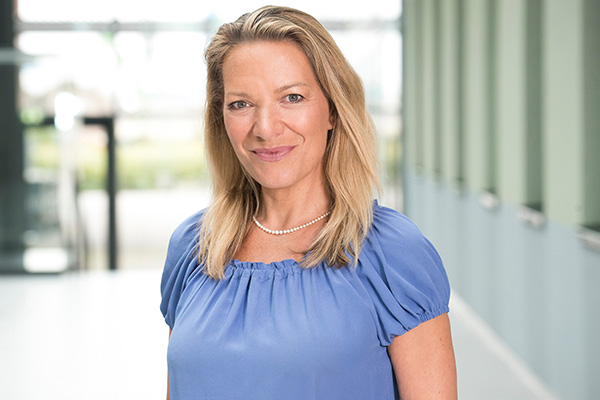
Antje Boetius
Biology
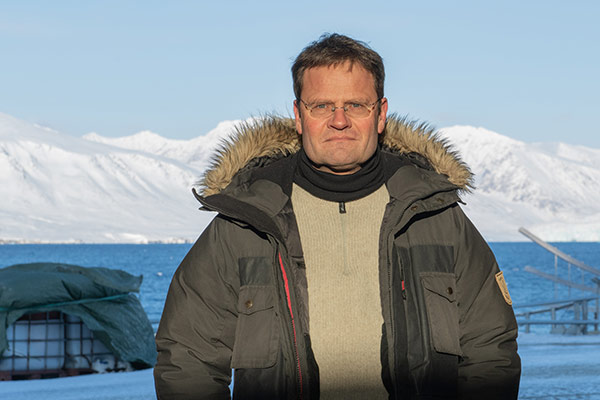
Markus Rex
ResearcherGerman polar researcher, climate scientist, physicist and best-selling author.

